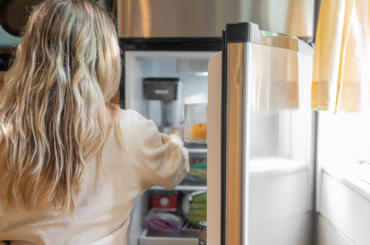As parents, we spend a lot of time telling our kids what not to do, in hopes of keeping them safe—and that’s definitely true when it comes to screen time. We tell kids which types of sites to avoid, warn them about chatting with strangers, and put parental controls on their apps and games to protect them.
But an often overlooked way to keep kids safe (and get them to actually listen to what you’re saying) is to tell them what they CAN do!
It’s unrealistic to think kids won’t meet anyone online, just because it can potentially be dangerous. So it’s a great idea to tell them what they can do when it comes to talking to people and making friends online, and teach them how to do it safely. You can help kids identify safe online relationships, and teach them when and how to cut things off when needed.
The experts at Thorn, an organization co-founded by Ashton Kutcher and Demi Moore to defend children from sexual abuse, provided a great script for getting the convo started. Read below to find out what you can say to help your kids understand safe and unsafe friends online.
A Script For Helping Your Child Make Friends Online, SAFELY
“What do you think is the difference between a safe online friend and an unsafe one?
Good ones treat you nicely, respect you, and don’t pressure you to do things you don’t want to. Did you know that some people may be nice at first and then get really mean?”
“Sometimes people may be nice at first to earn your trust. No matter how nice they may seem at first, if they try to get you to join in a private conversation instead of staying in the group, ask you for private information, or try to pressure you to do something that makes you uncomfortable – they aren’t good people.”
“Do you think people always tell the truth about who they are online?”
“Sometimes people pretend. They can pretend to be silly and have fun, or for bad reasons – like to trick someone or to hide something. That’s what makes online friendships complicated. It’s hard to really know who someone is without knowing them in person.”
“Safe online friends never pressure you to do something you don’t want to or make you feel uncomfortable or scared. Has anyone ever made you feel uncomfortable online?”
“Things like asking if you are alone or for your phone number, address, what school you go to, or to send a picture – these may be ‘red flags,’ which are like little warning signs that signal to us that something is off or unsafe.”
“My goal is for you to have fun online AND to keep you safe and feeling comfortable online. Will you tell me if anyone makes you uncomfortable, scares you, or tries to ask any of those questions? You know you can always come to me no matter what, ok?”







